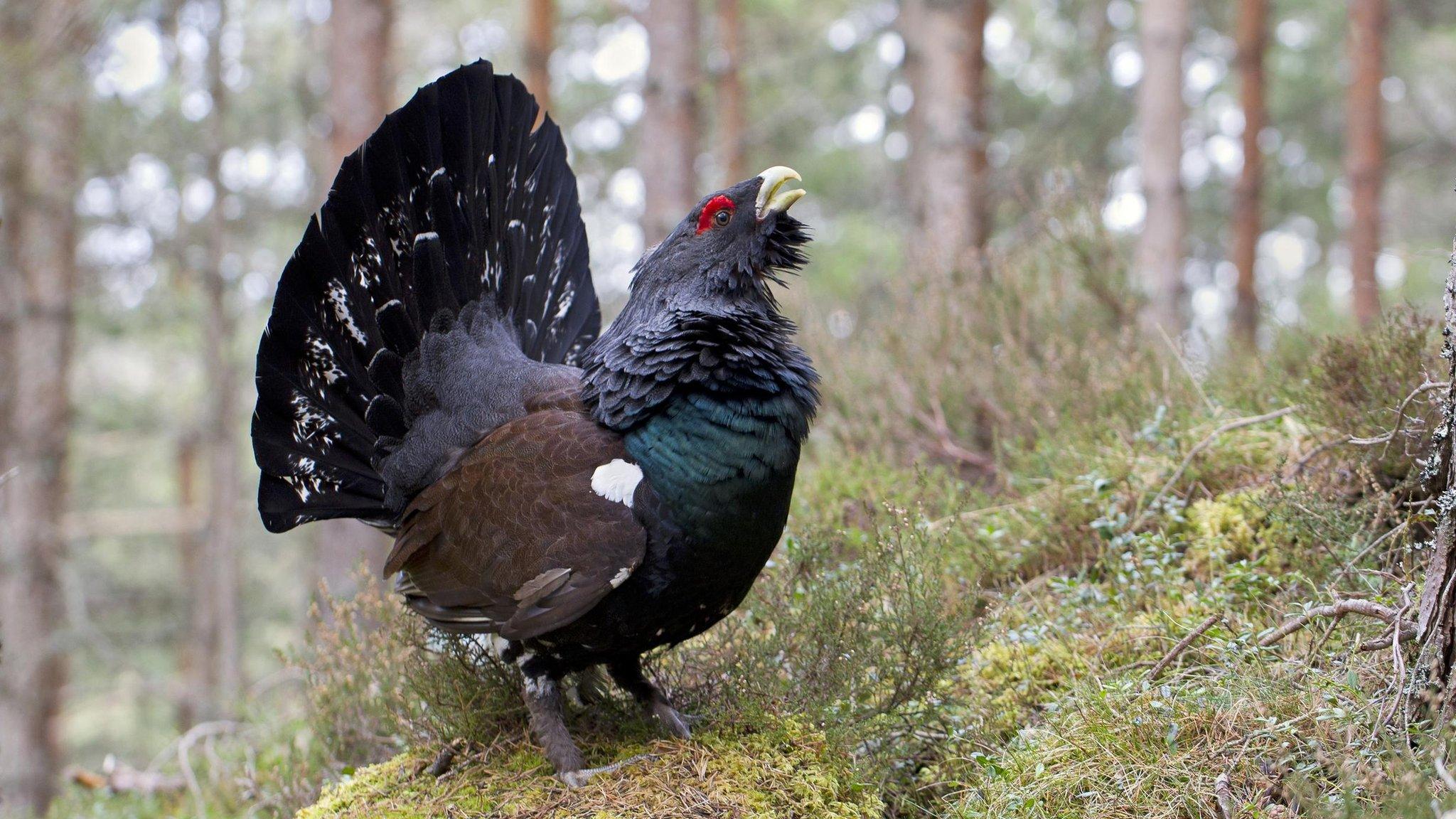Puffins, shags and razorbills doing well, says NTS
- Published
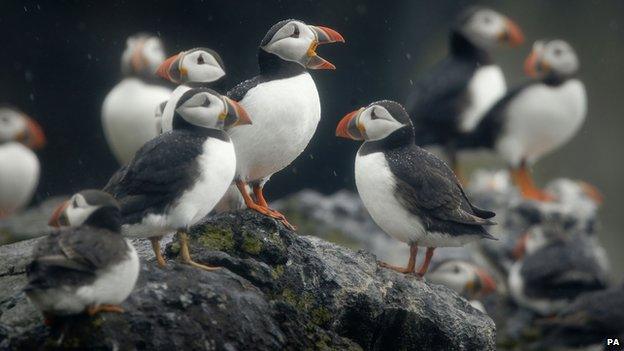
Puffins are among the birds recorded as having a good season
Some species of seabirds have had their most successful breeding seasons for a decade, the National Trust for Scotland (NTS) has said.
Conservationists have been concerned by long-term declines in the birds. In May, RSPB Scotland said "urgent action" was needed to halt falling populations.
NTS said kittiwakes, razorbills, shags, puffins and common guillemots have had a good season.
The successes have been recorded on Mingulay, Canna and St Kilda.
There were 1,642 pairs of Kittiwakes trying to nest on Mingulay, up 46% since last year, according to NTS.
Studies carried out by the Highland Ringing Group on Canna suggested that kittiwakes were up 14% since last year and also had "excellent breeding success".
Guillemots and razorbills also experienced better breeding success and higher numbers than in recent years.
Researchers also located five occupied nest burrows of Manx shearwaters at three locations around Canna.
'Bad news'
Rats had wiped out shearwaters on the island, but a pest eradication project, completed in 2006, has helped the birds to re-colonise.
On St Kilda, NTS said annual monitoring suggested that puffins have had much greater breeding success than in recent years.
Dr Richard Luxmoore, the trust's senior nature conservation adviser, said: "Many seabirds have experienced a good breeding season at colonies in the west of Scotland.
"After several years of bad news it is encouraging to be able to report that several species have had their best season in 10 years."
Bob Swann, of the Highland Ringing Group, added: "It was great to see the colonies so full and so noisy this summer.
"Although we are unlikely to see a return to the peak numbers of the 1980s and 1990s, I'm hopeful that the declines may have stopped and, for some species, even reversed."
- Published15 May 2014
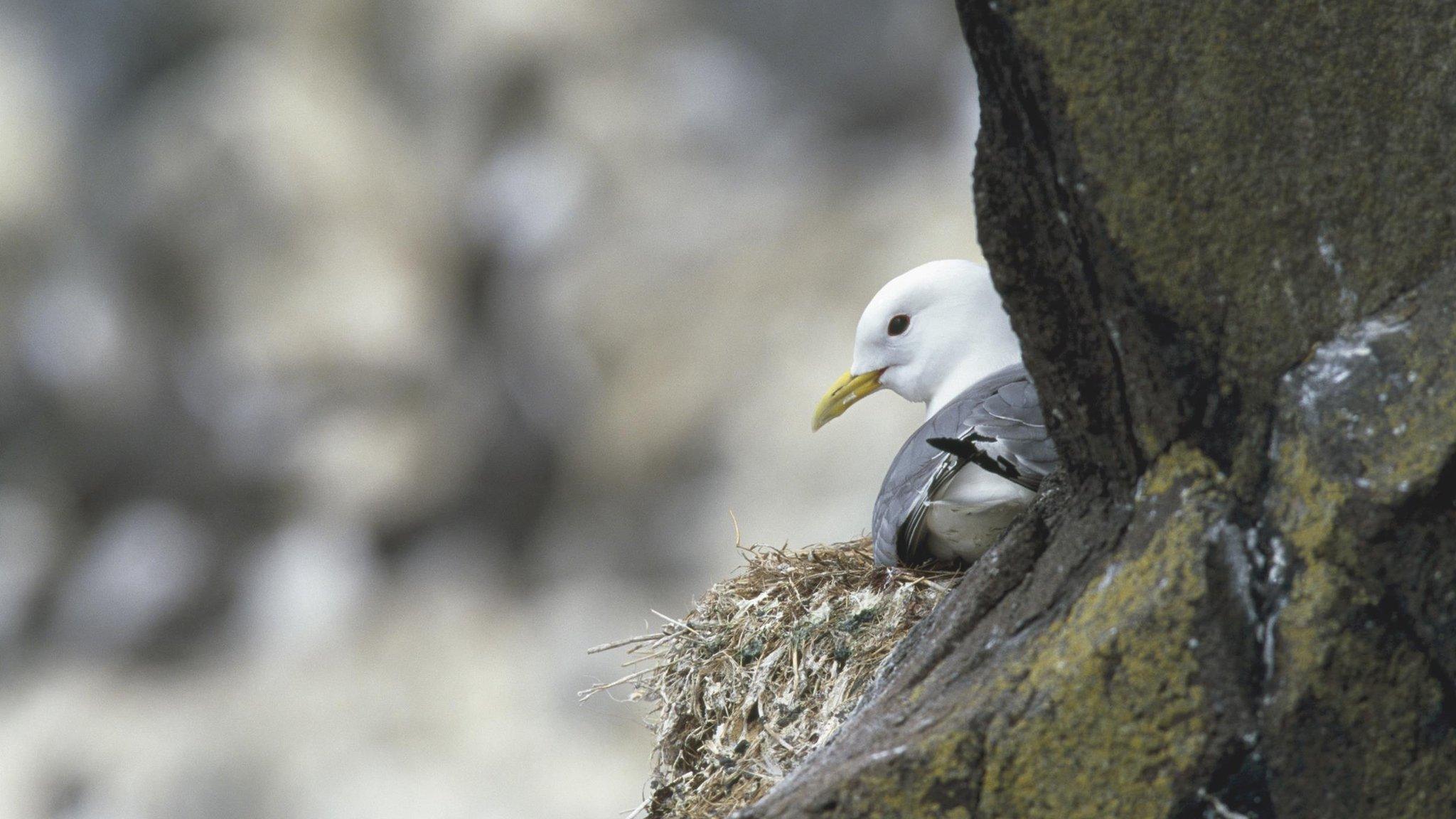
- Published24 September 2013
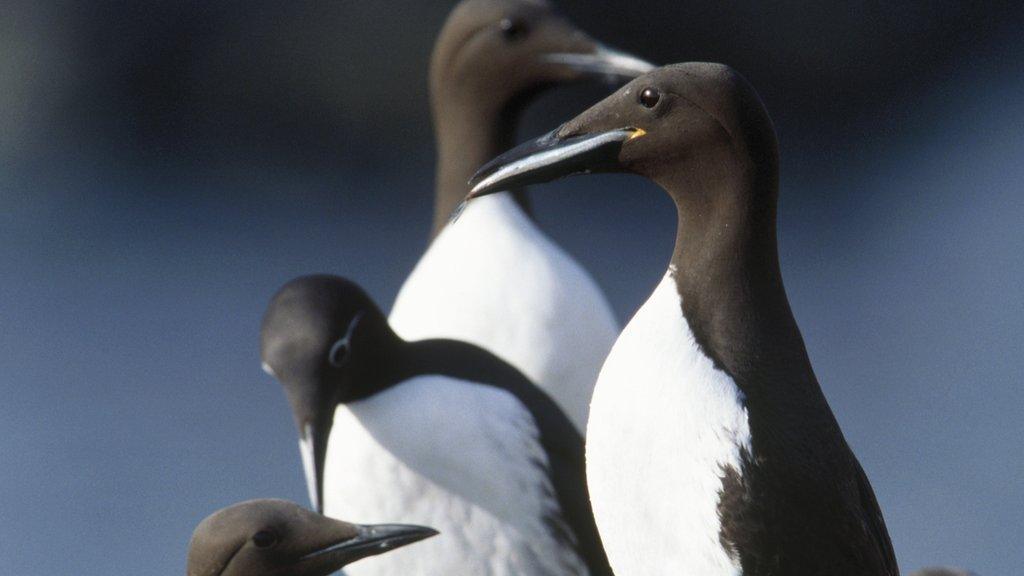
- Published23 July 2013
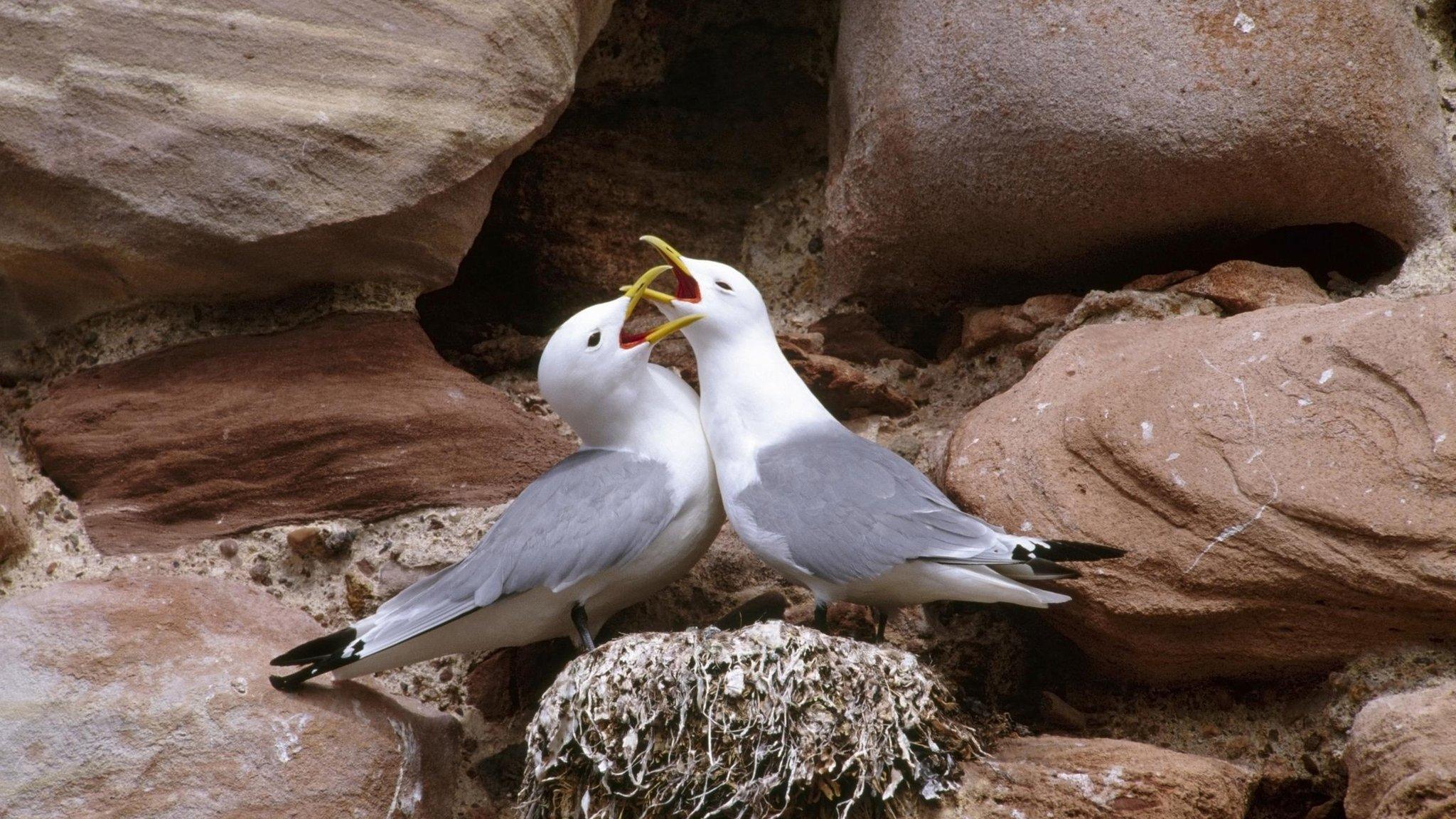
- Published22 May 2013
